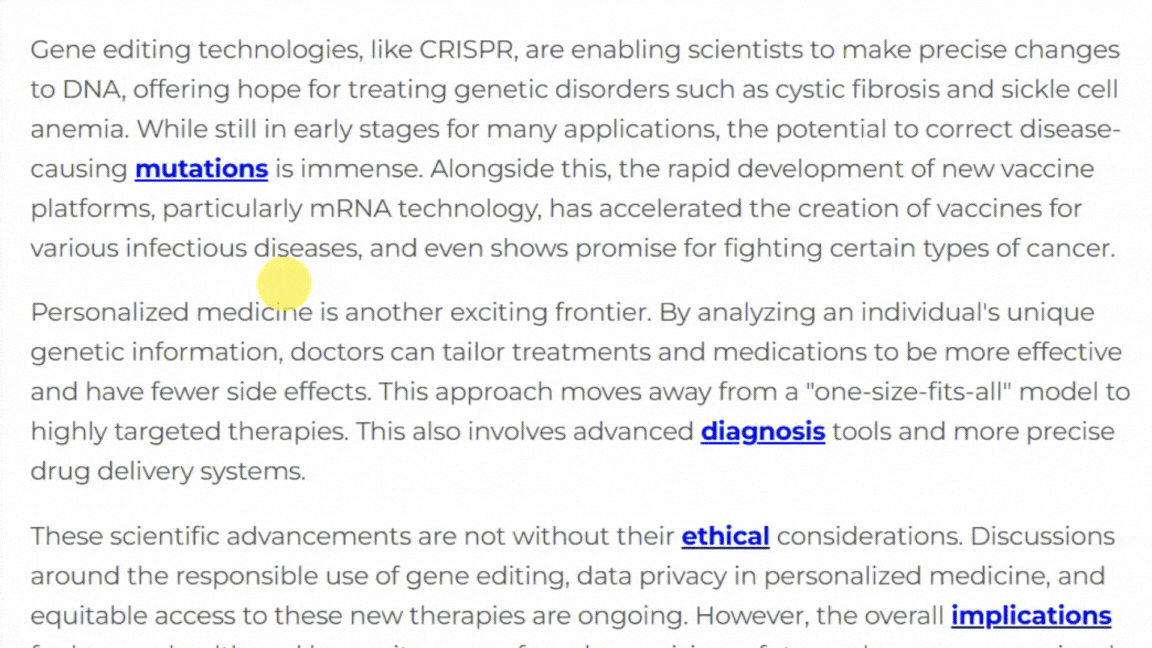Amber Talk
Enhance Your Conversation
Amber Talk
Enhance Your Conversation

Quantum Computing
Breaking News
Listen
Scroll Down For Speaking Practice. Click ‘Practice Speaking Now’ to start.
Read
Quantum computing is an emerging technology that harnesses the peculiar phenomena of quantum mechanics to perform calculations far beyond the capabilities of even the most powerful classical computers. Unlike classical bits that represent information as either a 0 or a 1, quantum computers use qubits.
Qubits can exist in a superposition of states, meaning they can be both 0 and 1 simultaneously. Furthermore, qubits can be entangled, where the state of one qubit instantaneously influences the state of another, regardless of distance. These two quantum properties allow quantum computers to process vast amounts of information in parallel, making them incredibly powerful for specific types of problems.
The immense potential of quantum computing spans numerous fields. It could revolutionize drug discovery by simulating molecular interactions with unprecedented accuracy, leading to new medicines and therapies. In materials science, it could enable the creation of novel materials with tailored properties. It also poses a significant threat to current encryption methods, necessitating the development of quantum-resistant cybersecurity.
Despite its promise, scientists face significant hurdles in developing quantum computers. Qubits are extremely fragile and susceptible to environmental interference, leading to decoherence. Maintaining their quantum state for long enough to perform complex calculations is a major hurdle. Furthermore, building and scaling quantum computers requires extreme cooling and isolation, and developing robust error correction mechanisms is an active area of research. While still in its early stages, quantum computing holds the key to unlocking solutions for some of humanity's most complex problems.
Let's Talk About It!
- 1. How do you think quantum computing might change our daily lives in the future?
- 2. What is the biggest difference between a classical computer and a quantum computer?
- 3. Can you explain what a "qubit" is in your own words?
- 4. What are some ethical considerations we should think about as quantum computing develops?
- 5. Do you think quantum computing will make current encryption methods completely obsolete?
- 6. What kind of scientific breakthroughs do you think quantum computing could enable?
- 7. Why is it so difficult to build and maintain quantum computers?
- 8. How might quantum computing impact the field of artificial intelligence?
- 9. What role do you think international collaboration plays in advancing complex technologies like quantum computing?
- 10. If you could use a quantum computer to solve one problem, what would it be?
Article Vocabulary Instructions
Click to Enlarge
